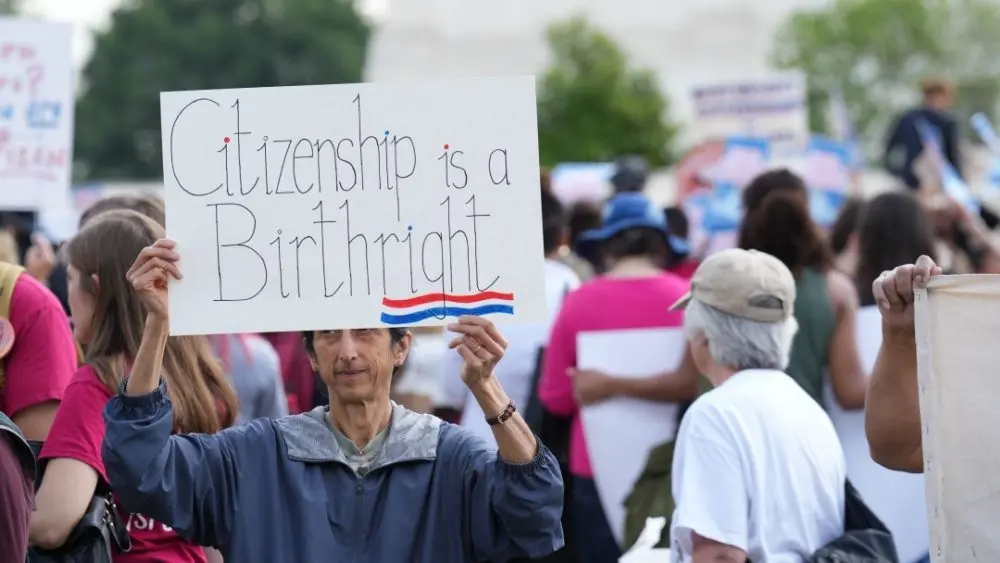JEFFERSON CITY, Mo. (AP) — Missouri’s Republican Secretary of State Jay Ashcroft on Monday asked the Democratic auditor for help investigating Sen.-elect Josh Hawley over allegations that he misused public resources to boost his Senate bid.
Ashcroft requested in a letter that Auditor Nicole Galloway check into the claims against Hawley, who is currently serving as attorney general and unseated Democratic Sen. Claire McCaskill last month. Hawley’s office is already scheduled for a routine audit.
Ashcroft last week agreed to investigate Hawley following a complaint by Brad Woodhouse, the president of the liberal American Democracy Legal Fund.
In his November complaint, Woodhouse wrote that it appears Hawley misused state resources “by instructing political consultants to direct state, taxpayer-paid staff to undertake tasks that would raise Hawley’s profile in his bid to represent Missouri in the U.S. Senate.”
A spokeswoman for the attorney general has called the complaints “totally meritless.”
Ashcroft wrote that while his office has no subpoena power to investigate the allegations against Hawley, Galloway’s office does.
He also asked that her office share relevant information from the audit and allow his staff to at least sit in on any possible interviews with attorney general employees.
“We do not have the same tools that the Auditor’s Office has to conduct an investigation,” Ashcroft wrote.
A spokeswoman for Galloway said she’s reviewing Ashcroft’s letter.
Attorney general spokeswoman Mary Compton did not immediately comment Monday.
She has said that the allegations are “totally meritless,” that no taxpayer resources were ever used for Hawley’s campaign, and that the office will cooperate with Ashcroft’s investigation.
Woodhouse’s complaint followed reporting by The Kansas City Star, which obtained records that show out-of-state political consultants that went on to work for Hawley’s Senate campaign also advised his staff in the attorney general’s office.
The records show campaign consultants gave direct guidance and tasks to Hawley’s state staff.
Ashcroft’s deputy general counsel, Khristine Heisinger, last week requested that the Attorney General’s Office provide its responses to the newspaper’s open-records requests, and also asked The Kansas City Star for its records.
The newspaper reports it declined to provide them.
The Missouri Attorney General’s Office sent the Secretary of State’s Office a letter responding to the complaint.
Here it is:
Dear Ms. Heisinger:
Thank you for contacting me regarding the complaint filed by Mr. Brad Woodhouse against Attorney General Joshua Hawley on October 31, 2018, alleging a purported violation of § 115.646, RSMo. Our Office is happy to participate in your review of these allegations, and we look forward to a speedy resolution. The documents that you requested in your letter of December 6, 2018, are attached to this response.
The complaint in this case is a frivolous act of political harassment. Mr. Woodhouse is a well-known Democratic operative for a leftist political organization. The group regularly attacked Attorney General Hawley during his recent successful campaign for the U.S. Senate and has filed multiple legal complaints against him in various forums. Woodhouse filed this particular complaint only seven days before the General Election—well within the ordinary blackout period for campaign-related complaints under Missouri’s ethics laws. § 130.054.1, RSMo.
This latest complaint is frivolous for at least four reasons. First, it alleges Attorney General Hawley expended public funds to benefit a campaign for the U.S. Senate. But as Mr. Woodhouse admits, no campaign existed at the time of the supposed “expenditures.” Public filings indicate the Josh Hawley for Senate Exploratory Committee was not formed until August 2017. Mr. Woodhouse acknowledges this fact, but attempts to get around it by asserting that the Office implementing General Hawley’s priorities in early 2017 later and indirectly benefited General Hawley’s Senate campaign. This stretches the statute beyond all recognition. To argue that the effective performance of public employees is illegal because it might also indirectly benefit some future electoral campaign is absurd.
Second, Mr. Woodhouse presents no evidence of any public communication—or private one, for that matter—that “advocated, supported, or opposed” any candidate for any public office. He alleges, again, that the work carried on by employees in the Attorney General’s Office could benefit a future campaign, but presents no evidence any such campaign was ever discussed or promoted.
Third, Mr. Woodhouse alleges Attorney General Hawley used state political committee resources to promote the work of the Attorney General’s Office, in this case, by supporting aides who provided advice on achieving Office priorities, like combating opioid abuse and human trafficking. See Compl. at 1-3. But Missouri law specifically authorizes and approves such uses of committee resources. See § 130.034.2, RSMo (“Contributions may be used for any purpose allowed by law including, but not limited to: . . . Any ordinary and necessary expenses incurred in connection with the duties of a holder of public office.”).
Fourth and finally, Mr. Woodhouse fails to meet the legal requirements for a complaint as set forth in the statute.
I. The Complaint Does Not Allege that Anyone “Directly” Made Any Contribution or Expenditure of Public Funds to Support a Candidate for Public Office.
Section 115.646 requires that the challenged contribution or expenditure be made “directly” to advocate, support, or oppose a candidate for public office. An indirect expenditure is not enough. The word “direct” means “immediate; marked by the absence of an intervening agency or influence.” Webster’s Second New International Dictionary, at 738. By contrast, “indirect” means “not acting directly from an act or cause, but more or less remotely connected with.” Id. at 1267.
The complaint does not allege any contribution or expenditure that was supposedly made “directly” to support Mr. Hawley’s candidacy for U.S. Senate at the time it actually existed. Rather, the entire theory of the complaint is that public resources somehow and indirectly supported a future campaign, by promoting the effective operation of the Attorney General’s Office and the implementation of key policy priorities. See Compl., at 1-3. Mr. Woodhouse speculates that the effective implementation of Attorney General Hawley’s policy priorities later redounded to the benefit of his successful campaign for U.S. Senate, but he does not allege any direct expenditure of public resources to assist any political campaign.
The argument that a public official may violate § 115.646 indirectly by engaging in efforts to implement his or her key policy priorities—on the theory that effective operation of his or her office will also result in future electoral success—stretches the statute beyond any plausible bound of reason. One hopes that every public official constantly seeks to run his or her office effectively and to implement his or her policy priorities. To argue that such use of public resources is illegal because it might also indirectly benefit some future campaign is absurd. If such conduct violated § 115.646, then every conscientious office-holder who executed his or her duties effectively would be engaged in illegal conduct all the time.
II. The Complaint Does Not Identify Any Publicly Funded Communication that “Advocated, Supported, or Opposed” a Candidate for Public Office.
The complaint also fails to allege any public communication that “advocated, supported, or opposed” any candidate for public office. The leading case interpreting § 115.646 is State ex rel. Wright v. Campbell, 938 S.W.2d 640 (Mo. App. E.D. 1997). In Campbell, the Court of Appeals explained that “[w]hat is prohibited by the statute is the expenditure of public funds ‘to advocate, support, or oppose any [candidate]. Obviously, one can only ‘advocate,’ ‘support,’ or ‘oppose’ through some sort of communication.” Id. at 644 (internal citation omitted). For this reason, whether a violation of § 115.646 has occurred “must be determined by reference to the [government-funded] communications themselves.” Id. “Either [the communications] ‘advocate,’ ‘support,’ or ‘oppose’ the [candidate] or they do not.” Id.
Here, the Complaint does not allege any public communications that purportedly advocated for, supported, or opposed any candidate for public office. Because no violation of § 115.646 can occur without an unlawful communication, the Complaint fails to allege a violation of the statute. Campbell, 938 S.W.2d at 644.
III. The Attorney General Is Not an Officer or Employee of a “Political Subdivision.”
Further, § 115.646 applies only to the conduct of any officer, employee, or agent of any “political subdivision.” Id. Chapter 115 of the Missouri Revised Statutes defines “political subdivision” as “a county, city, town, village, or township of a township organization county.” § 115.013(20), RSMo. The Attorney General is not an officer, employee, or agent of any “county, city, town, village, or township.” Id. Rather, he is a statewide elective officer under Article IV, § 17 of the Missouri Constitution, who serves the people of Missouri as a whole. Mo. Const. art. IV, § 17. The plain and ordinary meaning of “political subdivision” confirms that neither the Attorney General nor the Office of the Attorney General falls within the scope of § 115.646. Rizzo v. State, 189 S.W.3d 576, 579 (Mo. banc 2006) (holding that a bill “relating to political subdivisions” violated the single-subject rule because it also applied to statewide officials); Black’s Law Dictionary (10th ed. 2014) (defining “political subdivision” as “[a] division of a state that exists primarily to discharge some function of local government” (emphasis added)). Accordingly, Mr. Woodhouse does not allege any plausible violation of § 115.646.
IV. The Complaint Does Not Contain Any “Facts of the Alleged Offense” Known by Firsthand Knowledge and Sworn to Under Penalty of Perjury.
Anyone who files a complaint alleging violation of Section 115.646 must “stat[e] the facts of the alleged offense, sworn to, under penalty of perjury.” § 115.646, RSMo (emphasis added). Though Mr. Woodhouse made such an affirmation on the signature line of the complaint form, the attached complaint contains no information that Mr. Woodhouse purports to know first-hand. Rather, its allegations of conduct rely exclusively on a single news article from the Kansas City Star, that does not identify any of its sources. See Compl., at 1-3 (relying exclusively on Lindsay Wise et al., Out-of-State Political Consultants Helped Direct Josh Hawley’s Missouri AG Office, Kansas City Star (Oct. 31, 2018)). Even this article—Mr. Woodhouse’s sole source for his allegations—grudgingly concedes (in its twenty-ninth paragraph) that the conduct reported is fully authorized by Missouri law. See id. (“Having campaign staff run meetings on government property does not necessarily run afoul of Missouri law, as long as the meetings were not explicitly political.”). In other words, Mr. Woodhouse has no first-hand knowledge of his allegations—he just reiterated something he read in the media. Every fact he alleges is based on multiple levels of hearsay from anonymous sources reported in a news article that concedes that nothing illegal occurred.
Such a complaint, which piles hearsay upon hearsay from unidentified sources, violates the requirement that complaints must be based on facts sworn to under penalty of perjury. This requirement is an important safeguard that prevents § 115.642 from becoming a vehicle for partisan attacks designed to malign and harass one’s political opponents—which is exactly what happened here. Without such safeguards, public officials would be forced to divert time and resources from serving the public into defending against vicious partisan attacks—which, again, is exactly what happened here. The timing, the content, and the source of the complaint all indicate that this complaint is not brought in good faith, but for the sole purpose of politically motivated harassment.
The Secretary of State has broad authority under the statute to dismiss frivolous complaints. § 115.642.2, RSMo. We are happy to cooperate in your review of these allegations, and we urge the Secretary to speedily dismiss this complaint as frivolous.







